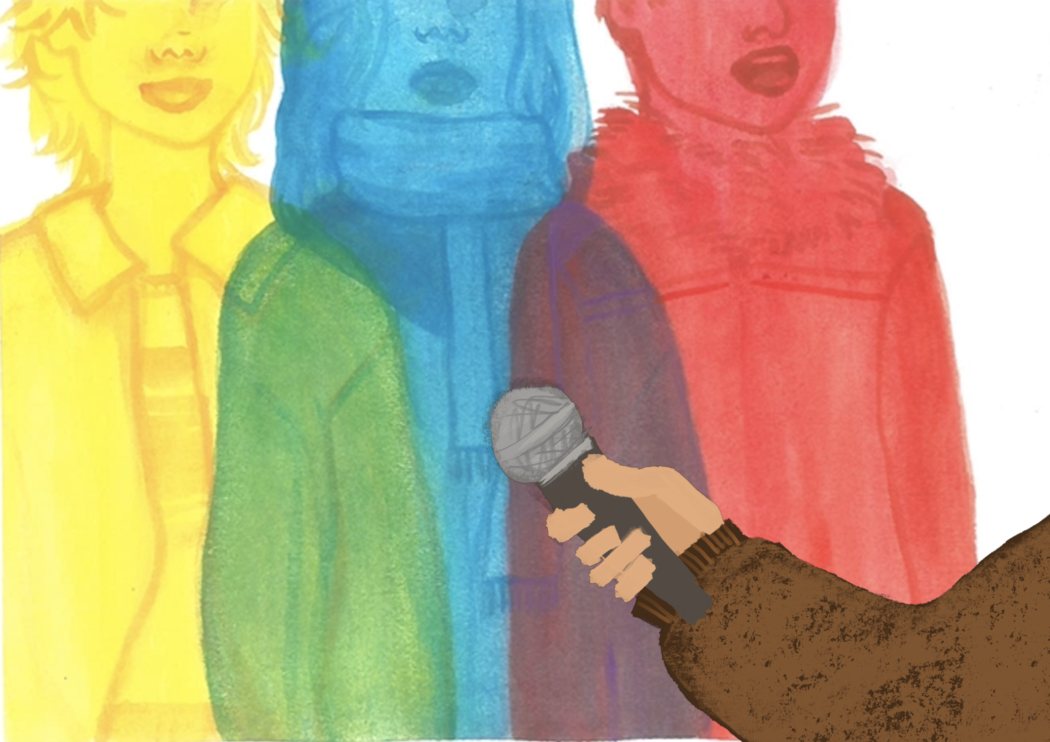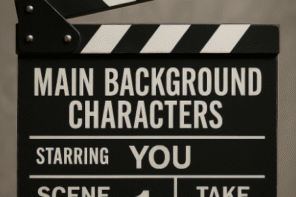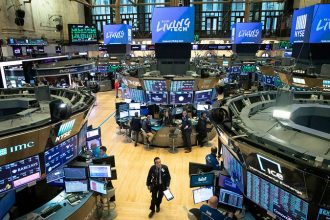Since the result of the United States Presidential Election at the beginning of November, people around the world, particularly on the left, have been scrambling to find explanations for President-elect Donald Trump’s landslide victory against Vice President Kamala Harris. In search of an answer myself, I asked a variety of students across different fields the same question: “What do you think explains the outcome of the United States presidential election?” I did not give the respondents any time to prepare an answer, so they had to reply off the top of their heads. These are their transcribed responses (abridged for clarity):
“I think it boils down to the fact that the democratic party, as much as I hate to say it, has become very out of touch with its voter base. The fact of the matter is they misidentified an election that was very much about the economy and framed it as a fight against fascism. I, as a fourth-year political science major, couldn’t define fascism succinctly. If you frame an election as a fight for the rule of law and democracy against fascism to people who cannot afford to be ideological, you are setting yourself up for failure.”
– Elle, Political Science and International Development
“I think it was due to the decline of liberalism as a political ideology. We have seen it since 2008. Liberal institution establishment candidates are not popular and I think a lot of that hindered Kamala Harris’ chances. Especially when she tied herself to the establishment and to Biden. I think that made her appear as a status quo candidate in a time during which everywhere around the world, incumbent reelections are really declining.”
– Philippe, Physics and Computer Science
“When people are dissatisfied with the economic situation of a country, they tend to elect the opposing party. There are several aspects that I think are relevant: right-wing populist movements are growing, and I think that at the moment America isn’t grown enough to accept a woman, let alone a black woman, as their leader. Also, I feel like Biden leaving the race later on fed into it, if she came up through the primary, things could have been different. Also, the fact that people voted for the independents and considered them eligible candidates really was not in favour of the democratic party. I think that she (Kamala Harris) didn’t focus enough on minorities, on Muslim Americans, on Hispanic Americans. She was overconfident that she was going to get all the swing states and it just did not happen.”
– Anonymous, Political Science
“It’s something I’ve been thinking about a lot lately – it confuses me how misinformation has been spread a lot. Social media and fake partisan news have reinforced some beliefs to an extent that I didn’t think would be possible. The results repeated themselves the same way they did with Hillary, and this time I was less hopeful because I saw how it happened the first time. It was very upsetting to see how it turned out.”
– A.A., Marketing
“My honest answer is stupidity. But I think there’s been a misinterpretation, largely by the media, specifically in the liberal camp, to try to explain that within structural frameworks: a lack of education, or issues with social class consciousness, etc. I don’t think those interpretations work because 90% of Americans own iphones, own computers, have access to the internet, and have access to a library, yet 70% read below a 6th-grade level. This, in my view, has nothing to do with education. It has to do with the fact that Americans, at large, are very stupid. There is a very well-known study that found that when asked if the army should bomb Agrabah, the fictional setting of the movie Aladdin, 50–60% of Americans said “yes”. The majority of Americans, bi-partisanly, supported the intervention in Iraq following 9/11, but, when asked if they supported the Iraq war after the fact, the majority responded that they didn’t. That has nothing to do with partisan bias. The fact is, the majority of Americans are nuts stupid. This applies, also importantly, across racial lines. People go ‘Why are black and Latino voters voting against their interests? Why don’t people see a threat to democracy?.’ They’re stupid, they don’t see themselves as having those interests in the way that academics would say ‘This is your set of interests.’ The fact is, the majority of Americans, largely bipartisanly, are just really fucking dumb. I also apply that everywhere: globally speaking, we’re seeing a rise of very bad critical thinking.”
– PF. Chang, Philosophy
“I think a lot of it has to do with social media, young white men buying into the whole Joe Rogan/Elon Musk ‘ideal.’ I feel like a lot of it has to do with people not being educated enough or being misinformed about the sources they saw online. I think you can also link it back to Hillary Clinton’s campaign. They went about it in similar ways. They had a lot of celebrity endorsements which I think made them seen more ‘elite’ than their opponent. A lot of people stated that they felt Trump was more relatable than Kamala. The online celebrity endorsements bit the democrats in the ass.”
– Anonymous, Computer Science
“I think that Trump targeted the working class, which has been the most affected in the past couple of years. To me, it felt like the democratic party moved away from its original base and moved towards identity politics, which is not a bad thing but it isolated more people. I don’t think more people voted for Trump, it was that fewer people went to the stands to vote for Harris. Trump made it so that more people became hesitant to vote for the democratic party, they questioned whether the past four years of leadership had improved their lives, whether the democratic party has their best interests at heart.”
– S.C., Finance
“It’s a combination of different factors. Firstly, Joe Biden dropped out from the race really late, so Kamala didn’t have a proper primary and was kind of thrown in at the last minute. Trump is seen as the ‘economy candidate,’ even if I don’t think that his policies are better for the American working class. I think that they would definitely benefit society economically, but at a higher level: those who are already in power, those who don’t need to benefit any more than they already have. The economy is doing poorly, and when that happens, people tend to vote for more Republican and protectionist policies. There is also the factor that Kamala is black and a woman, I’m not going to say that it’s just because of that, but I definitely was a factor for a certain subset of the electorate. There also was the genocidal conflict in Palestine. I think a lot of people were put off by the fact that Kamala didn’t outright denounce it. She may have lost some liberal supporters that way who instead voted for the green party. I don’t think that was the main issue though, I think that even if everyone who voted for the green party had voted democrat, she would still have lost the popular vote. I just think a large portion of Americans weren’t really aware of the implications and effects of Trump’s policy, and are now finding out what the economic effects of tariffs will be, what is going to happen with the Department of Education. Now, they’re realising how it will affect them but it’s too late. There’s a general lack of knowledge and economic literacy, and it’s objectively true that people who are more educated tend to vote more democratically. I really think it has to do with general lack of education. I don’t know if that’s an elitist take, it probably is but…”
– Anonymous, Political Science
“I think a lot of it is that people are very ignorant about the different issues that can come up with Trump being elected. A lot of Americans choose only to focus on the benefits and are swayed by some of the economic benefits. They don’t consider the hardships that will befall a lot of people because of this result.”
– Anonymous, Software engineering
“I think it is a buildup of over 10 years of friction between the two main political parties. I think one of the biggest complications with this election and its aftermath is that there is an instinct to automatically assume the other side is stupid, for being what I feel is disillusioned and lied to. I assume it’s the same feeling they have. There’s automatic hatred against the other side which there hasn’t been in previous elections, if we look back the 60s, 70s or 80s. This hatred has really been taken advantage of. It is embodied in the campaigns ran by Donald Trump and Kamala Harris.”
– L., Philosophy
“I think it has a lot to do with people’s opinions on the previous administration. I don’t think anyone had strongly positive feelings about them, so that will contribute to them wanting a change. I also think that this time, Trump’s opponent was a lot more controversial and difficult to accept for more conservative members of society.”
– K.A.S, Chemical Engineering
In conclusion, from this small sample, we can draw a wide variety of possible explanations for the outcome of the U.S. presidential election. Many respondents attributed the loss to the lack of enthusiasm raised by the Democratic Party and Vice President Kamala Harris. It seems that Harris’ campaign was not adequately able to respond to the immediate economic concerns of American citizens. Many respondents also pointed to misinformation, ignorance, and, in one case, stupidity. They deemed that Donald Trump’s campaign was bolstered by a general lack of awareness. Most consider that a second Trump presidency will have very negative consequences for middle and working-class interests, the economy, and American democracy, but voters haven’t seriously considered them when making their decisions. Notably, none of the respondents expressed strong support for either candidate. Most were quite critical of the democratic party, focusing their explanation on Kamala Harris’ failed campaign. Additionally, there was little mention of the swing states, in which specific conditions may have influenced the electorate.








